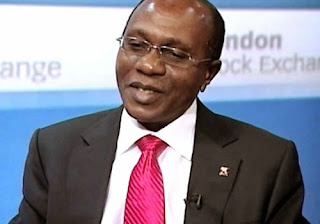Nigeria marches into Q3 with a mission to stabilize by Lukman Otunuga
It’s quite interesting how, despite several months of disappointing domestic data and ongoing recessionary woes, Nigeria remains resilient, with the nation on a mission to stabilize by the end of 2017.
Although this year has dished out a myriad of trials ranging from internal concerns, external shocks and falling oil prices, the macro fundamentals of the largest economy in Africa continue to stabilize with a recent string of positive data verifying this statement. The subtle signs of recovery can already be seen across GDP, inflation, FX and even the balance of trade, all of which should support the growing confidence over the nation’s health. As we enter the third quarter of 2017, foreign investors will be watching Nigeria closely to see whether the country is able to maintain the current momentum and ultimately break away from its recessionary chains.
Nigeria’s persistent inflation concerns eased slightly in June following reports that the rate of inflation declined for the fourth consecutive month in May to 16.25%, the lowest figure for the year so far. This continued price stability has played a crucial role in boosting foreign investor risk sentiment towards the nation and has also heavily supported the Nigerian Stock Exchange (NSE). With the Consumer Price Index visibly cooling, the Central Bank of Nigeria should have some breathing room to cut interest rates in the future and consequently boost business confidence, ultimately supporting further growth.
Although disappointment initially flooded the Nigerian markets a few months ago following a soft first quarter GDP growth of -0.52%, it must be kept in mind that this was actually the best GDP performance seen for four quarters. With a variety of non-oil sectors in Nigeria ranging from manufacturing to agriculture and transportation already turning positive, the overall outlook is very encouraging with the impact potentially being felt in the second, third and final quarters of 2017. Economic growth for the second quarter of 2017 is speculated to hit 1.3%; if this is confirmed, then Nigeria will have officially broken away from recession after five quarters of decline. Such a scenario will be highly beneficial for the nation as a display of stability will magnetize foreign investors.
Speaking of foreign investments, the MSCI’s recent decision to delay a potential removal of the MSCI Nigeria Index until this November should further support confidence and sentiment towards the nation. It is highly likely that the stabilizing economic environment and noticeable improvement in liquidity across major market segments played a key role in MSCI’s decision to re-evaluate Nigeria’s position in its Index. With the internal investment community displaying optimism over Nigeria’s medium to longer term outlook, there is a likelihood that MSCI will keep Nigeria on its Frontier Index. While positive signs are already visible with Nigeria’s weighing on the MSCI Frontier rising, the threat of MSCI removing the nation could still negatively impact its current recovery.
The Central Bank of Nigeria should find itself in the spotlight in the second half of 2017 as investors wait to see whether interest rates will be hiked or trimmed. Although the Central Bank may be commended on its logical decision to maintain key interest rates at 14% as the nation recovered some ground and continued its quest to diversification beyond oil exports, it may be time to make a move. With inflation cooling, data improving and the Naira supported on the parallel markets, a potential interest rate cut to 12% could be on the cards.
While the seeds of diversification have already been planted, Nigeria still remains vulnerable to falling oil in the short to medium term. A sharp and sustained depreciation of oil not only presents a serious threat to the implementation of the approved 2017 budget but also to the Naira’s current stability. It must be understood that oil prices directly impact Nigeria’s foreign external reserves and a drop in the commodity will most likely reduce Dollar supplies, consequently impacting the stability of the Naira Exchange. Instability in the Naira exchange will not only punish Nigerians but would also repel foreign investors. With oil prices officially in a bear market, this should be the green lights for Nigeria to switch up gears on the quest to diversification.
Focusing on the Naira, the currency currently trades around 365 against the Dollar as the CBN repeatedly injects Dollars into the foreign exchange markets to maintain liquidity. While this method has boosted sentiment towards Nigeria and created stability, questions should be raised of this strategy’s sustainability. As discussed earlier, falling oil prices have the ability to create instability in the Nigerian foreign exchange and such should not be the case. The multiple exchanges is still an issue lingering in the background that the Central Bank must strive to rectify while allowing the natural forces of supply and demand to determine the true value of the Naira.
All in all, the sentiment towards the Nigerian economy is taking a turn for the better as the economy continues to improve. Much attention will be directed towards MSCI’s decision of Nigeria’s Index and the pending GDP report for Q2 which should provide further insight as to how the nation has fared so far this year. While external risks such as higher US interest rates and falling oil may enforce some downside pressures, the nation should prove resilient as it continues its ongoing quest to diversifying and achieving a stable macroeconomic climate.


Comments
Post a Comment